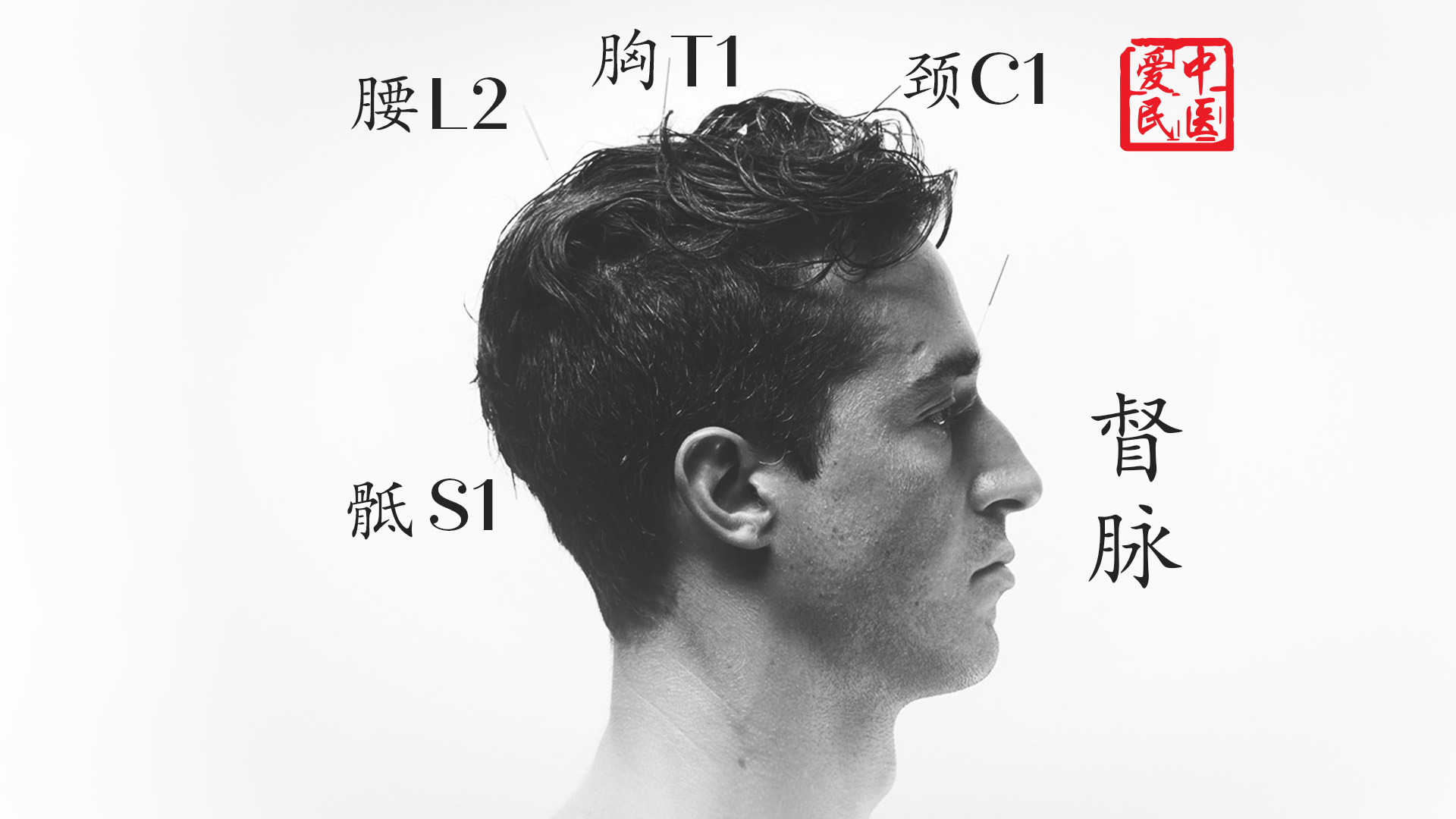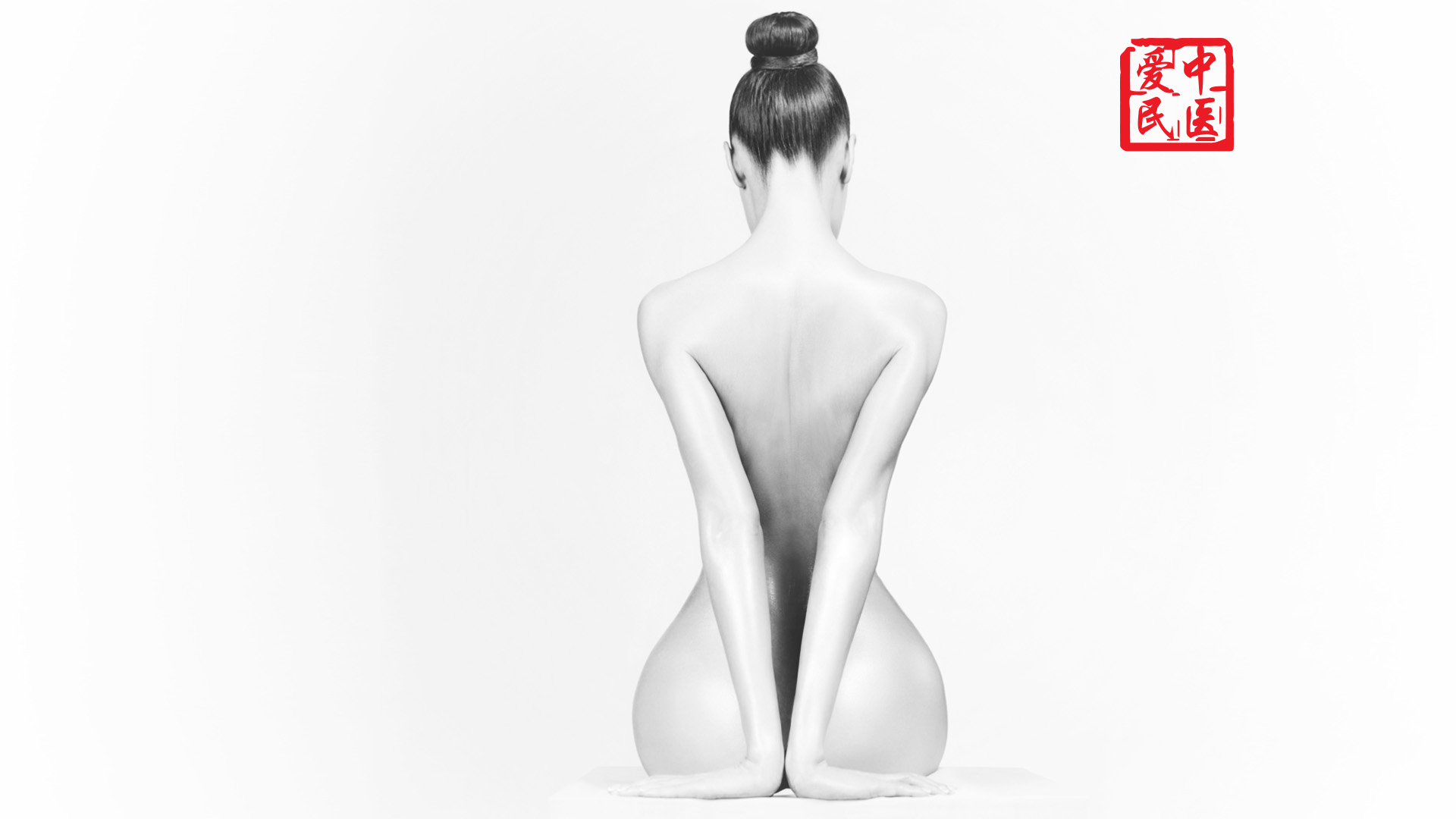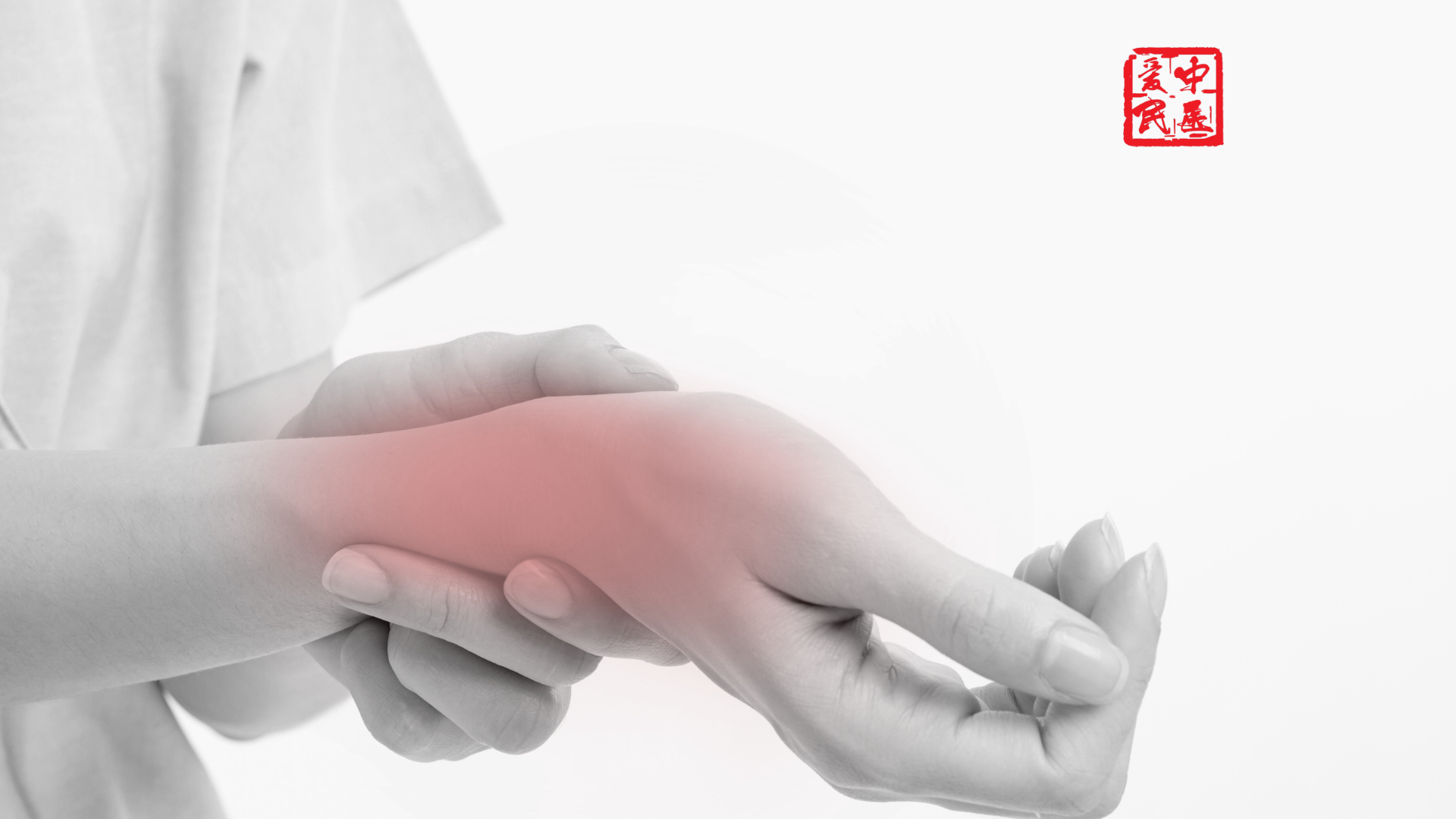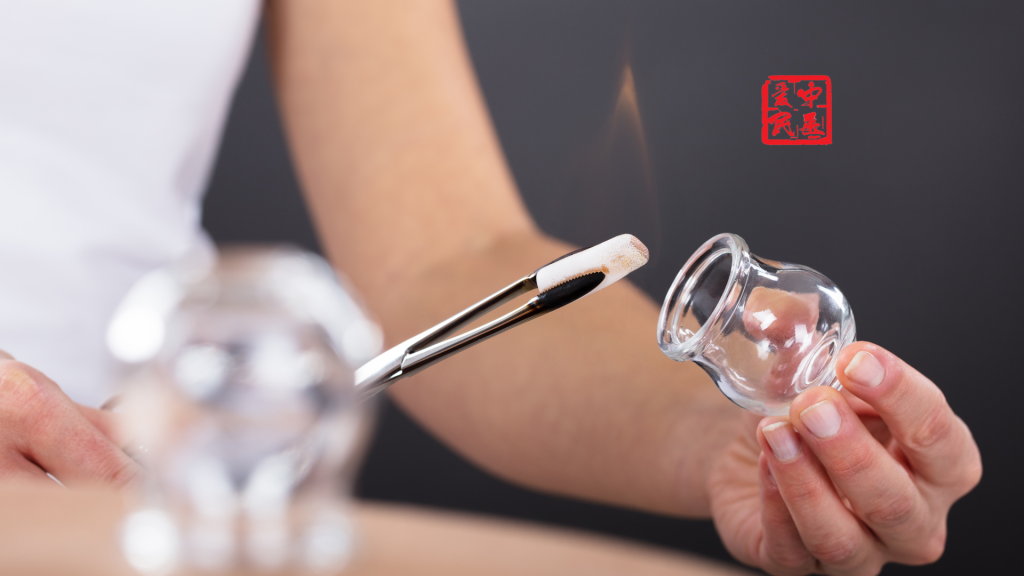What is TCM Cupping Therapy?
Cupping Therapy in Traditional Chinese Medicine (TCM) originated in ancient China, making it one of the oldest recorded medical practices in history. The earliest evidence of cupping can be found in the ancient “Silk Book” called 薄蜀 (Bo Shu), which was discovered in a tomb dating back to the Han Dynasty (206BC – 220AD). Over the centuries, this therapy gained popularity, with TCM practitioners continuously refining and perfecting its techniques.
Initially, cupping was performed using animal horns, then later evolved to the use of bamboo cups, and eventually became more familiar with the application of glass or ceramic cups. These cups are heated to create a vacuum effect when they are placed on the skin.They are applied to certain areas of the body on our meridian points, commonly the back to create suction that improves blood flow and enhances our body’s Qi, its vital life force.
How TCM Cupping Therapy Works?
TCM cupping therapy works by creating suction on the skin’s surface using cups, which are typically made of glass or plastic in today’s context. This suction, either through heat or manual pumping, draws the skin and superficial muscle layer into the cup to stimulate blood flow and restore balance to your body’s Qi, or life force. This increase in blood circulation helps alleviate muscle tension and improves overall circulatory health. Balancing the flow of Qi is believed to enhance overall well-being by boosting the body’s self-healing abilities.
Types of TCM Cupping Techniques
Dry Cupping Technique
Dry cupping creates a vacuum inside the cup using fire or a pump, lifting soft tissue, and creating an upward stretch within muscles, which relieves muscle tension, improves blood circulation, and promotes relaxation.
Wet Cupping/Blood Cupping Technique
This technique makes tiny incisions on the skin before placing the cups. The body’s toxins and a small amount of blood are removed by the vacuum effect, which helps in detoxification and aids in healing.
Fire Cupping Technique
Fire cupping technique involves heating the air inside the cup before placing it on the skin, which is frequently applied to relieve chronic muscle strain and promote blood flow.
Moving Cupping Technique
Moving cupping technique allows the cups to move easily over the skin by applying oil before placing the cups, which are moved along the meridians to target areas of stagnation and stimulate energy flow.
Flash Cupping Technique
Flash cupping requires quickly inserting a flame into the cup before placing it on the skin. The quick heat creates a vacuum, which is good for addressing acute conditions or relieving pain.
Benefits of TCM Cupping Therapy
Increases Blood Circulation
Cupping creates suction that enhances blood circulation in the targeted areas where the cups are applied. This increased blood flow delivers more oxygen and nutrients, which facilitate cell repair and rejuvenation.
Relieves Muscle Tension
The lifting action of the cups aids in relieving muscle tension and facilitates the release of lactic acid and other toxins. This provides relief from muscular pain and stiffness, ultimately enhancing flexibility and mobility.
Boosts the Immune System
Cupping are often used in TCM to maintain health and prevent diseases by strengthening the body’s Qi (vital energy) and promoting resilience.
Stimulates New Connective Tissue Formation
Cupping stimulates the production of collagen by encouraging the activity of fibroblasts, then cells responsible for connective tissue formation. This rejuvenates the skin and improves its elasticity, making you look younger.
Effective for Respiratory Conditions
TCM Cupping Therapy has long been used to address chronic cough, asthma, and bronchial congestion (obstruction of the airways). It stimulates the lungs and other vital organs, aiding in the clearing of phlegm and reducing inflammation
in the respiratory tract.
Detoxification
Cupping enhances blood circulation and lymphatic flow, facilitating the elimination of toxins and waste materials from the body. This flush out the toxins in your body and helps maintain a healthier system.
Muscle Relaxation and Pain Relief
The suction created by cupping relaxes tense muscles and alleviates fatigue. Furthermore, the increased blood flow can alleviate back, neck, and joint pain, providing a natural and non-invasive solution for pain management.
Reduces Stress and Anxiety
Cupping stimulates the release of endorphins, our body’s natural painkillers and “feel-good” hormones. This helps reduce stress, anxiety, and can even contribute to managing depression, supporting overallmental well-being.
Holistic Approach
TCM Cupping Therapy takes a holistic approach by recognizing and treating the body as a connected whole, rather than focusing solely on individual parts.
It’s important to note that cupping should be performed by trained and qualified physicians who have a deep understanding of TCM theory and techniques. Consulting a licensed TCM physician will ensure that cupping is tailored to individual needs and applied safely and effectively.
Who Should Avoid TCM Cupping Therapy
Skin Conditions
Individuals with severe skin conditions, open wounds, ulcers, or those prone to allergic reactions should refrain from cupping therapy as it may exacerbate these conditions or cause discomfort.
Pregnancy
Pregnant women, especially those in their third trimester, should avoid cupping on the abdomen and lower back, as it may potentially induce labor or cause discomfort.
Recent Surgeries
If you have recently undergone surgery or have any fresh wounds or scars, cupping should be avoided in those areas until they are fully healed to prevent infection or
hinder the healing process.
Children
Only done gently and with professional guidance. It should be adjusted for age and sensitivity, with close monitoring
to ensure safety.
Always consult a qualified TCM practitioner to determine the appropriate approach and consider less invasive alternatives if needed.
Severe Health Conditions
Individuals with severe diseases, particularly those with bleeding disorders or who are taking blood-thinning medication, should avoid cupping therapy. Additionally, caution should be exercised by individuals with significant liver or kidney dysfunction, as cupping can affect blood flow and exert additional pressure on these organs.
Cancer Treatment
Patients undergoing cancer treatments such as radiation or chemotherapy should refrain from cupping due to the potential for physical weakness and complications, such as a low platelet count, which can lead to excessive bruising.
Always keep an open and honest communication with our physician of Cupping Therapy regarding your medical history,
current health status, and any medications or supplements you are taking.
Providing this information will enable them to offer safe and effective treatment recommendations tailored to your specific needs.
Frequently Asked Questions (FAQ)
How long is a TCM cupping therapy session?
Approximately 10 to 30 minutes pass during a normal cupping therapy session, depending on the condition being treated, how many cups are used, and how the patient responds. The specific needs and condition of the patient determine the exact length of the session.
Is TCM cupping therapy painful?
Cupping therapy is generally not painful. The skin may feel pulled or constricted when it is drawn into the cups. While some find this slightly painful, others find it to be soothing. The degree of suction and the sensitivity of your skin determine how it feels. The practitioner can change the suction if the pain is too great.
Are there any side effects of TCM cupping therapy?
- Bruises or circular marks: These usually go away in a few days to a week and are not hazardous.
Temporary soreness: The locations where the cups were applied may experience mild soreness or discomfort.
Skin irritation: If cupping is used too long or with too powerful of a suction, it may, on rare occasions, result in mild skin irritation or blistering.
Dizziness: Some people may feel lightheaded shortly after the therapy.
- Risk of infection: In locations where the skin is injured or irritated, there is a little chance of infection if adequate hygiene is not maintained, however, this is uncommon.
How long do the effects of TCM cupping last?
Cupping can have long-lasting effects, ranging from a few days to several weeks, depending on the ailment being treated and the general health of the patient. These effects may include pain alleviation, muscular relaxation, or increased circulation. While some people may feel relief right once, others may need more sessions to get longer-lasting results.
Can TCM cupping therapy be combined with other TCM treatments?
Indeed, combining cupping therapy with other TCM treatments like these is common.
Acupuncture works synergistically with cupping to improve blood flow, muscle relaxation, and Qi balance.
Herbal medicine supports the body’s healing process when used alongside cupping.
Gua Sha, combined with cupping, further stimulates circulation and relieves muscle tension.
Tuina massage paired with cupping promotes deeper muscle relaxation and more comprehensive healing.
Meridian massage improves energy flow, relieves pain, enhances circulation, and boosts immunity.
It also reduces stress, supports digestion, improves sleep quality, aids detoxification, and promotes reproductive health.
Combining these therapies offers a holistic treatment that addresses both physical and energetic imbalances for improved well-being and a balanced state of mind.
How often should I go for TCM cupping therapy?
The frequency of cupping therapy depends on your specific health condition and treatment goals. Typically:
For acute issues, such as muscle pain or respiratory problems, cupping may be recommended 1-2 times a week until symptoms improve.
For chronic conditions or general maintenance, treatments may be scheduled once a month or as needed. A TCM practitioner can give you personalized recommendations based on your needs and progress.
It’s always best to consult a licensed TCM practitioner to determine the right cupping therapy schedule for your unique situation.
Other Services
Acupuncture
Our body has more than 2,000 acupuncture points connected by meridians. These meridians create qi known as energy flow through the body. Qi flows along specific meridians throughout the body.

TCM Treatment
Traditional Chinese Medicine (TCM) treats a number of issues and approaches treating ailments from a holistic perspective. A variety of symptoms are treatable such as colitis, pain, infertility, menstrual cramps,

Aimin Slimming
To cater the growing demand of the effective slimming programs, Aimin developed several techniques, such as body slimming massage, with the application of TCM and acupuncture.

Pain Management
TCM combines ancient wisdom with modern understanding to provide holistic pain relief, aiming to alleviate discomfort and boost your overall health. Aimin TCM in Singapore offers expert care on your journey to a pain-free life.

Woman Care
Woman Care helps to accelerate blood circulation, promoting body metabolism.
It plays a physical therapy role for body health.

Schedule an Appointment
Book an appointment with us today to secure your slimming package trial
Don’t miss out on our exclusive offers for a healthier, slimmer you!
